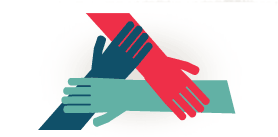myths
Myth: Only loud or flirtatious girls in tight clothes, or wearing short skirts get raped
Fact: Rape is never the victim's fault. People who are assaulted can be of any age, sex, religion, come from any culture or background and be gay, straight or bisexual.
Myth: A rapist is likely to be a stranger who rapes someone in a dark alley
Fact: The majority of rapes are committed by people who know and trust each other. They could be friends, partners, family members or know each other from school, college or work.
Myth: Alcohol and drugs turn people into rapists
Fact: Drugs and alcohol are never the cause of rape or sexual assault. It is the attacker who is committing the crime not the drugs and/or alcohol.
Myth: When it comes to sex girls say 'no' but they really mean 'yes'
Fact: It's simple - if two people want to have sex with each other it should be something that they both agree and consent to.
Myth: Rape is only rape if someone gets physically injured
Fact: In some cases people who have been raped have injuries outside or inside their bodies, but not always. Just because someone hasn't got any injuries doesn't mean they weren't raped.
Myth: It is not rape if the victim does not clearly say 'no'
Fact: Someone doesn't have to say the word NO to withhold permission. There are lots of ways they might say they don't want to have sex. Many people find it hard to say anything, and will show through their body language that they don't want to.
Myth: Rape is only rape if someone gets physically forced into sex
Fact:This is not true. Rapists often use emotional pressure and manipulative techniques to intimidate and pressure their victims into sex, rather than physical force.
Myth: If two people have had sex before, it's always ok to have sex again
Fact: This is not true. Just because two people have had sex before it does not mean that consent is not needed the next time they have sex.
Myth: People often lie about being raped as they regret having sex with someone
Fact: Most people who have been raped or sexually assaulted tell the truth. In fact most people do not tell anyone that they have been raped because they feel too ashamed and scared.Estimates suggest around 8-10% of all rape complaints are false, but there is no evidence to suggest there aremore false rape allegations than false allegations of other offences.



